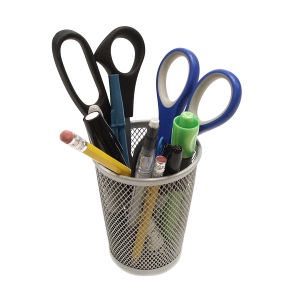 How do you organise your workspace for maximum productivity? This question is a broad one, but here are some general principles.
How do you organise your workspace for maximum productivity? This question is a broad one, but here are some general principles.
Understand the Purpose of Organisation
First, it might be worth considering what motivates you to get organised? Some people get organised because they’ve been told it is a “good thing”, because they want a sense of control or because they’re into the aesthetics of being organised. However, in productivity terms, the goal of organisation is to remove the barriers that prevent you from getting your work done.
There are two implications of this:
- If the apparent disorganisation in your workplace isn’t actually hampering your progress, just ignore it. It isn’t really disorganisation at all.
- If the disorganisation is actually slowing you down, then dealing with the disorganisation is as much part of the job as anything else you have to do in order to achieve results.
Prepare Your Work Space
- When you are starting a piece of work, put the things you need in the most convenient places for the task.
- Consider using a tool-belt, desk tidy, apron with pockets or similar, so that the tools you need are always handy when you need them.
Review Organisation Regularly
Most work divides into small steps. At the end of each step, take time to get organised. This includes tidying up and putting away anything that you’ve used in the previous step, and getting everything ready for the next step. The goal should be to make the next step run as smoothly as possible. In any job, preparation and clearing up are as much part of the job as anything else you do.
For example, if you use the Pomodoro Technique, check your organisation at the end of each pomodoro.
Monitor Your Work Space
- Whenever you use a thing, put it back where it came from, or find a more suitable place for it.
- Whenever you take a break, take a moment to check your workspace and put everything back where it should be, ready for when you pick up tools again.
Do One Thing at a Time
The more tasks you do at a time, the more materials, tools, work in progress, paperwork etc. you’ll need to keep track of. Limiting yourself to a single task / project will reduce the amount of stuff you need to keep organised.
If you have to do more than one project at a time, take time to organise whenever you task-switch.
Acknowledgements
Image courtesy Jack Tse via freeimages.com.